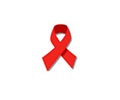Ending AIDS by 2030 is possible through political and financial choices.
- The United Nations agency responsible for combating AIDS released a report titled "The Path that Ends AIDS"
- It asserts that the epidemic can be ended by 2030 through political and financial choices
- It also reveals a decline in HIV funding in 2022 and underscores the progress made in reducing HIV infections in children through investments and policy reforms
UNAIDS Report: Clear Path to Ending AIDS by 2030 Requires Political and Financial Choices
According to the report's executive summary, UNAIDS Executive Director Winnie Byanyima asserts that the path to ending AIDS is apparent based on the data and real-world examples presented. Byanyima highlights that some leaders are already on this path and achieving success. The report demonstrates how countries that prioritize the well-being of individuals and communities in their policies and programs are leading the way toward ending AIDS by 2030.Achieving the 95-95-95 Target: A Path Towards Ending AIDS
Byanyima specifically mentions Botswana, Eswatini, Rwanda, the United Republic of Tanzania, and Zimbabwe as countries that have already achieved the "95-95-95" targets, while at least 16 other countries are nearing this benchmark. The targets entail ensuring that 95% of people living with HIV are aware of their status, 95% of those aware are receiving life-saving antiretroviral treatment, and 95% of those on treatment have suppressed viral loads (1✔ ✔Trusted SourceAchieving the 95 95 95 targets for all: A pathway to ending AIDS
Go to source). Byanyima urges all leaders to follow suit, emphasizing that successful HIV responses require strong political leadership, adherence to scientific evidence, efforts to address inequalities, adequate funding, and support for communities and civil society organizations playing vital roles in the response.
Furthermore, the report underscores the positive outcomes resulting from investments in combating AIDS in children. It reveals that 82% of pregnant and breastfeeding women living with HIV worldwide were able to access antiretroviral treatment in 2022, up from 46% in 2010. Consequently, new HIV infections in children reduced by 57% from 2010 to 2022, reaching the lowest level since the 1980s.
The report also addresses the role of legal and policy frameworks in curbing the AIDS epidemic, highlighting countries that have recently repealed harmful laws, such as decriminalizing same-sex relations.
Byanyima expresses a hopeful outlook, emphasizing that while the world is not yet on the path to ending AIDS, the report reveals an opportunity for success that hinges on taking action. The facts and figures presented in the report demonstrate that the path is feasible and clear, inspiring a cautious but determined hope.
Reference:
- Achieving the 95 95 95 targets for all: A pathway to ending AIDS - (https://www.ncbi.nlm.nih.gov/pmc/articles/PMC9352102/)













